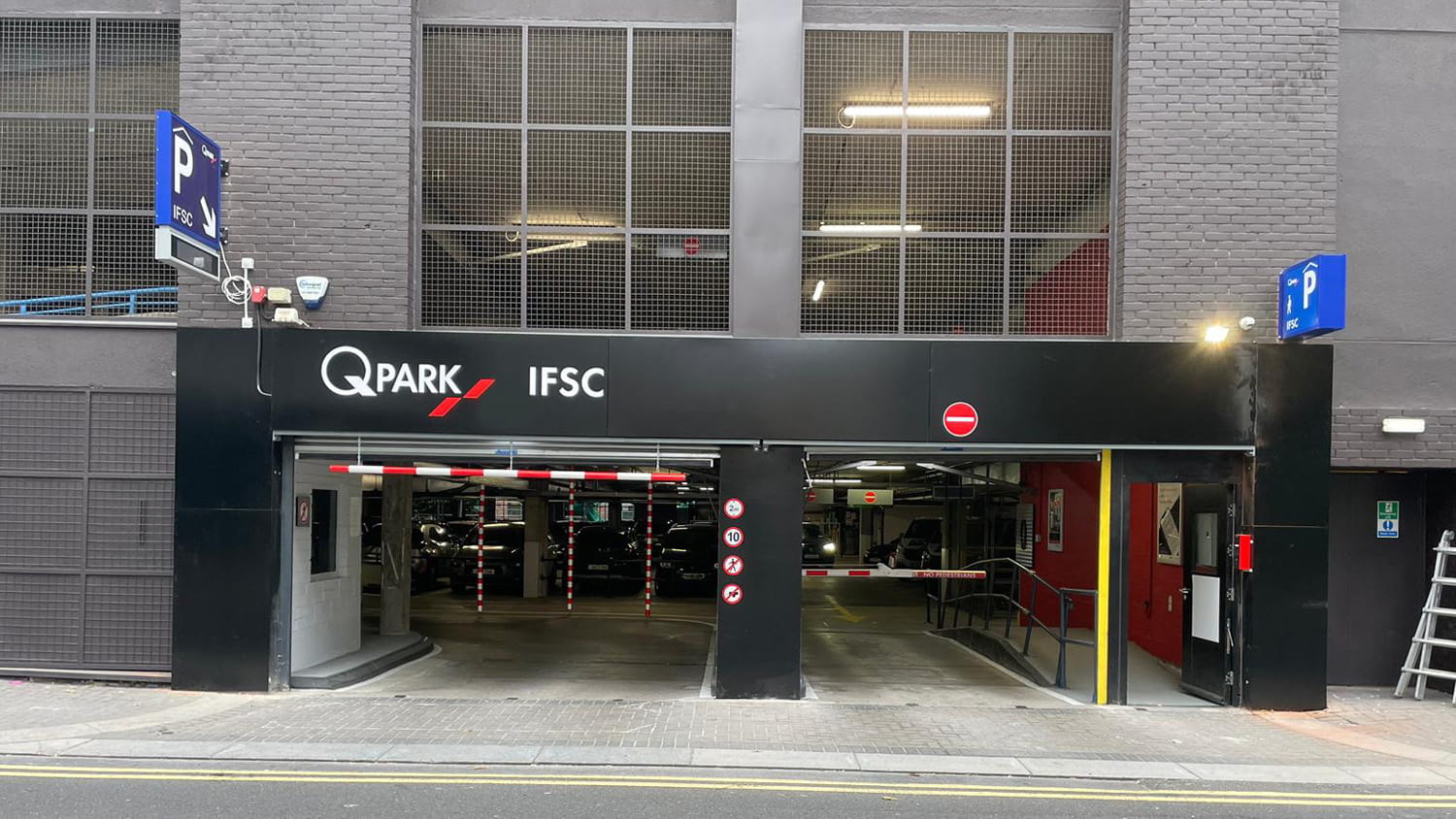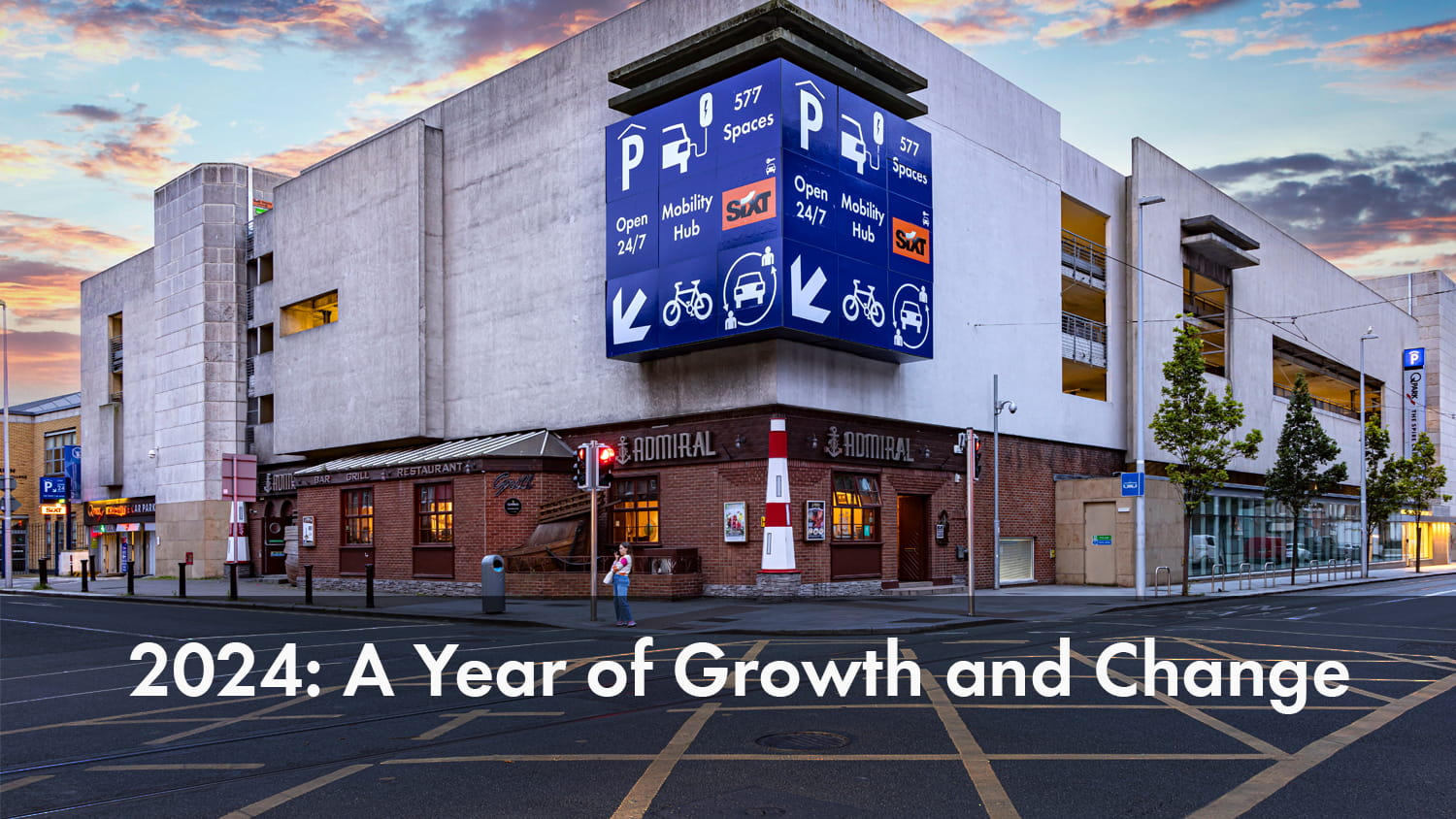
| As we reflect on 2024, this year has been a pivotal one for Q-Park – marked by growth but also a lot of change within the business.
Read more
FUD stands for Fear, Uncertainty and Doubt and is a term coined by EV Motorists about these myths which are pertinently not true.
Electric vehicles have been gaining popularity in recent years as the world makes a concerted effort to reduce its carbon footprint and combat climate change. However, along with this growth in interest comes a fair share of misconceptions and myths about electric vehicles which is known to some as FUD. FUD stands for Fear, Uncertainty and Doubt and is a term coined by EV Motorists about these myths which are pertinently not true.
In this blog, we'll bust some of the most common myths to help you better understand the reality of EVs.
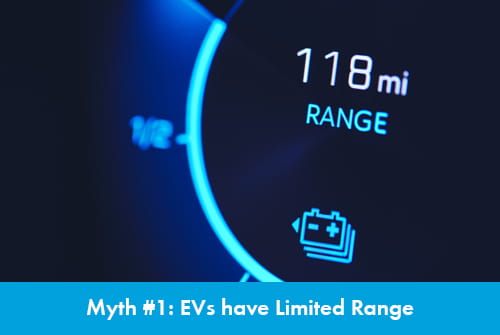
One of the most persistent myths about electric vehicles is that they have a limited driving range, making them unsuitable for long trips. While it's true that early EV models had limited ranges, recent advancements in battery technology have drastically improved the situation. Today, many electric vehicles can easily achieve over 200 miles on a single charge, and some high-end models can even surpass 300 miles. Rapidly expanding charging infrastructure such as those now available in Q-Park facilities, including fast-charging stations, further enhances the practicality of long-distance travel in an EV.
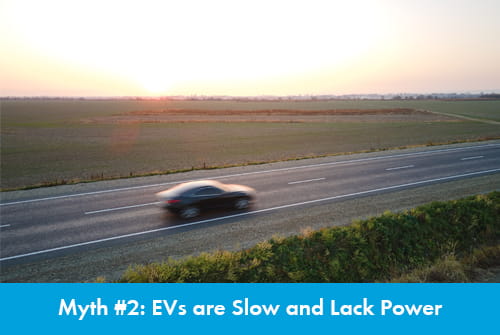
Another common myth is that electric vehicles are sluggish and lack power compared to traditional petrol powered vehicles. Most modern EVs offer impressive acceleration and torque. Electric motors provide instant torque, making EVs feel responsive and quick off the line. Some high-performance electric cars, such as Tesla's Model S and Model 3, can even outpace many ICE (Internal Combustion Engine) sports cars in terms of acceleration. Electric motors deliver power in a different way than internal combustion engines, but this doesn't mean they lack power.
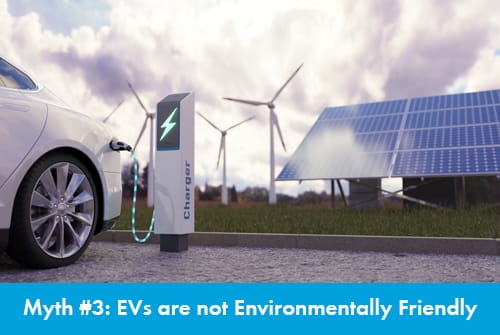
Some critics argue that electric vehicles are not as eco-friendly as they seem because of the emissions generated during the production of electricity. However, this myth overlooks the bigger picture. EVs produce zero tailpipe emissions, making them cleaner and greener than their petrol or diesel counterparts. Additionally, the carbon footprint of an EV depends on the source of the electricity used for charging. As the world shifts towards renewable energy sources like wind and solar power, the overall environmental impact of electric vehicles continues to decrease.
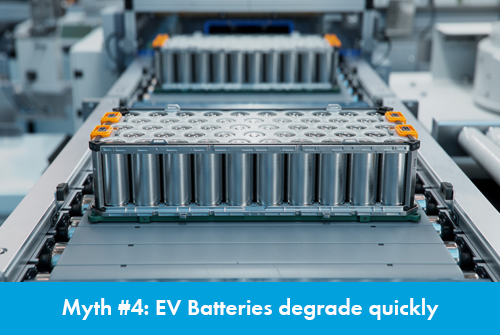
There is a common misconception that electric vehicle batteries degrade rapidly, resulting in short lifespans and costly replacements. While it's true that all batteries degrade over time, modern EVs are designed with advanced battery management systems to extend the life of their batteries. Most manufacturers offer warranties for their EV batteries that typically last eight years or more. With regular maintenance and careful usage, an EV's battery can last well beyond the warranty period.
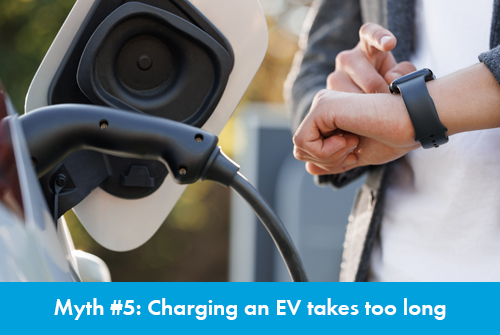
Another frequently heard myth is that charging an electric vehicle is a time-consuming process. While it's true that charging times can vary depending on the charging infrastructure and the EV model, most electric vehicles can be charged overnight at home using a standard 120-volt outlet. Faster charging options, like Level 2 chargers and DC fast chargers such as those available in a Q-Park Mobility Hub, can significantly reduce charging times. With rapid advancements in charging technology, EV owners are experiencing increasingly shorter and more convenient charging times.
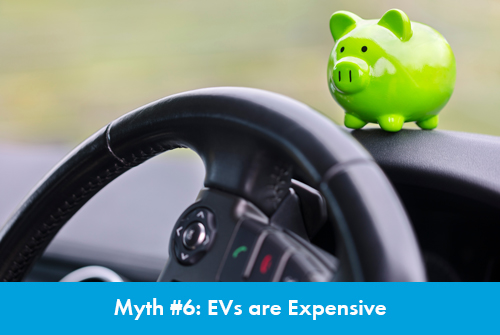
It's a common belief that electric vehicles are prohibitively expensive. While it's true that some premium electric car models come with a higher price tag, the cost of EVs has been steadily decreasing, thanks to advancements in technology and increased competition. Moreover, many governments offer incentives and tax credits to encourage the adoption of electric vehicles, making them more affordable for consumers. When considering the total cost of ownership, including fuel and maintenance savings, EVs can be a cost-effective choice in the long run.
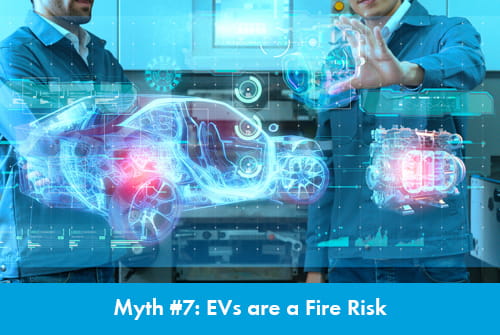
The myth that EVs are a significant fire risk is unfounded and largely based on misconceptions. While it is true that EVs use lithium-ion batteries, which can pose fire risks when damaged or abused, modern EVs are equipped with robust safety measures to prevent and mitigate such incidents. These include sophisticated battery management systems, redundant safety mechanisms, and extensive testing to ensure the batteries can withstand various stressors. In fact, EVs are generally no more prone to fires than traditional ICE vehicles. Statistically, the rate of EV fires is lower than that of petrol or diesel powered cars, and incidents are exceptionally rare when considering the growing number of electric vehicles on the road. Public concerns about EV fire risks are often exaggerated and do not reflect the extensive safety precautions and advancements in technology that make electric transportation a safe and viable option.
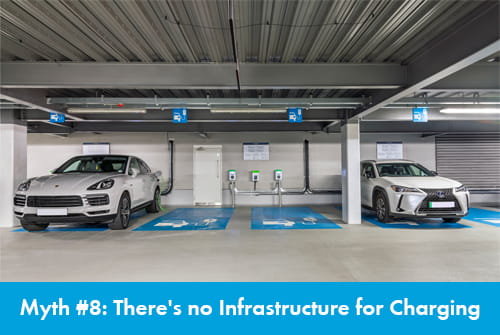
Some people still think there are not enough charging stations to support electric vehicle usage. The reality is that the charging infrastructure is rapidly expanding. Many governments, private companies, and vehicle manufacturers are investing in the development of charging networks. You can now find charging stations in urban areas, along motorways, at shopping centres, and even in some residential communities. As the adoption of electric vehicles continues to grow, so will the charging infrastructure. As an example Q-Park are currently investing over £3m installing over 600 EV Charging Points across their Estate. With hundreds already commissioned the latest information can be found here.
In conclusion, electric vehicles are a viable and increasingly practical choice for environmentally conscious consumers. Many of the myths surrounding EVs are based on outdated information or misconceptions. As technology continues to advance and awareness of EV benefits spreads, we can expect more and more people to make the switch to electric vehicles, contributing to a cleaner and more sustainable future for all.
About Q-Park
Q-Park is one of the three leading providers of parking facilities in West Europe, whether wholly owned, leased, managed or in a hybrid business model. Q-Park is notable for its quality approach and has a portfolio comprising over 677,000 parking spaces in over 3,400 parking facilities in the Netherlands, Germany, Belgium, Great Britain, France, Ireland, and Denmark. Q-Park has numerous mobility hubs which provide access to a variety of mobility solutions. We house and support a range of activities from last mile logistics, fleet charging hubs, micromobility and car sharing services which help support urban accessibility, sustainability and liveability.


